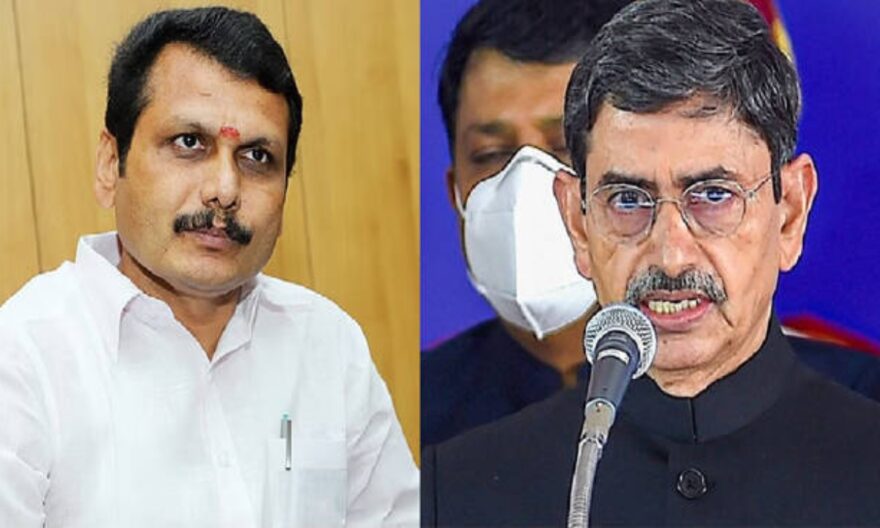
A constitutional crisis is unfolding in Tamil Nadu as Governor R.N. Ravi has put his decision to dismiss Minister V. Senthil Balaji on hold, despite having initially taken the decision without consulting Chief Minister M.K. Stalin. The governor’s decision to withhold came after Union Home Minister Amit Shah advised seeking the opinion of the Attorney General for India before proceeding. Legal experts are divided on whether the governor has the authority to dismiss a minister without consulting the chief minister.
Minister Balaji was arrested on June 14 in connection with an alleged cash-for-jobs scandal. Chief Minister Stalin retained him as a minister without portfolio following his arrest, although Balaji previously held the electricity, prohibition, and excise portfolios. In the dismissal order, the governor expressed concerns that Balaji’s continuation in the council of ministers could hinder due process of law and potentially disrupt the constitutional machinery in the state.
DMK leader T.K.S. Elangovan criticized the governor’s actions, stating that the Constitution does not grant the governor the right to remove a minister without the chief minister’s knowledge. Elangovan argued that being charged with a crime does not disqualify a person from holding a ministerial position, as it is the law of the land.
Under Article 164 of the Constitution, the governor appoints ministers based on the advice of the chief minister, and ministers serve at the pleasure of the governor. Senior advocate Indira Jaising opined that the governor’s actions exceed the limits of their constitutional position and called for a legal challenge to uphold the principles of parliamentary democracy.
On the other hand, senior advocate Mohan Katarki offered a different perspective, suggesting that while the governor’s dismissal of the minister may seem politically motivated, it could potentially meet the requirements of the law. According to Katarki, a minister is appointed by the governor on the advice of the chief minister but remains in office subject to the governor’s pleasure under Article 164(1) of the Constitution. Katarki argued that if a minister is in jail, regardless of the reasons or the validity of the case, the governor is justified in dismissing the non-functioning minister by withdrawing their pleasure.




